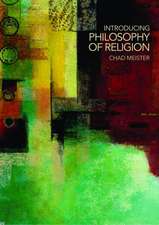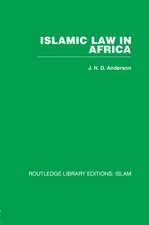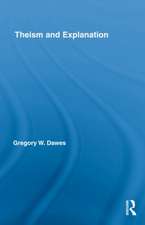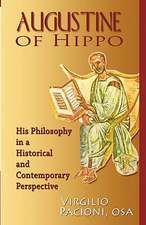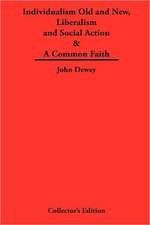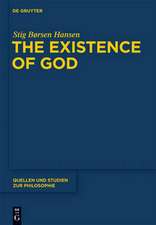Ibn Sina and his Influence on the Arabic and Latin World: Variorum Collected Studies
Autor Jules Janssensen Limba Engleză Hardback – 23 mar 2006
Din seria Variorum Collected Studies
- 9%
 Preț: 938.85 lei
Preț: 938.85 lei -
 Preț: 311.41 lei
Preț: 311.41 lei -
 Preț: 351.48 lei
Preț: 351.48 lei -
 Preț: 313.38 lei
Preț: 313.38 lei -
 Preț: 386.77 lei
Preț: 386.77 lei -
 Preț: 325.68 lei
Preț: 325.68 lei -
 Preț: 396.00 lei
Preț: 396.00 lei -
 Preț: 312.75 lei
Preț: 312.75 lei - 9%
 Preț: 1041.23 lei
Preț: 1041.23 lei -
 Preț: 258.66 lei
Preț: 258.66 lei -
 Preț: 299.55 lei
Preț: 299.55 lei - 9%
 Preț: 938.08 lei
Preț: 938.08 lei -
 Preț: 343.33 lei
Preț: 343.33 lei -
 Preț: 311.18 lei
Preț: 311.18 lei - 9%
 Preț: 937.13 lei
Preț: 937.13 lei -
 Preț: 351.41 lei
Preț: 351.41 lei -
 Preț: 320.00 lei
Preț: 320.00 lei - 34%
 Preț: 764.20 lei
Preț: 764.20 lei - 23%
 Preț: 315.48 lei
Preț: 315.48 lei - 36%
 Preț: 740.06 lei
Preț: 740.06 lei - 34%
 Preț: 764.20 lei
Preț: 764.20 lei - 34%
 Preț: 680.73 lei
Preț: 680.73 lei - 26%
 Preț: 247.40 lei
Preț: 247.40 lei - 34%
 Preț: 485.78 lei
Preț: 485.78 lei - 38%
 Preț: 766.91 lei
Preț: 766.91 lei - 34%
 Preț: 767.07 lei
Preț: 767.07 lei - 34%
 Preț: 764.20 lei
Preț: 764.20 lei - 34%
 Preț: 769.51 lei
Preț: 769.51 lei - 38%
 Preț: 769.85 lei
Preț: 769.85 lei - 34%
 Preț: 826.68 lei
Preț: 826.68 lei - 25%
 Preț: 225.28 lei
Preț: 225.28 lei - 25%
 Preț: 225.54 lei
Preț: 225.54 lei - 34%
 Preț: 736.38 lei
Preț: 736.38 lei - 34%
 Preț: 738.43 lei
Preț: 738.43 lei - 25%
 Preț: 226.52 lei
Preț: 226.52 lei - 33%
 Preț: 491.66 lei
Preț: 491.66 lei - 34%
 Preț: 485.78 lei
Preț: 485.78 lei - 34%
 Preț: 485.78 lei
Preț: 485.78 lei - 36%
 Preț: 739.17 lei
Preț: 739.17 lei - 38%
 Preț: 766.34 lei
Preț: 766.34 lei - 31%
 Preț: 473.94 lei
Preț: 473.94 lei - 18%
 Preț: 843.61 lei
Preț: 843.61 lei - 38%
 Preț: 774.91 lei
Preț: 774.91 lei - 38%
 Preț: 769.92 lei
Preț: 769.92 lei - 34%
 Preț: 764.20 lei
Preț: 764.20 lei - 51%
 Preț: 485.78 lei
Preț: 485.78 lei - 36%
 Preț: 488.49 lei
Preț: 488.49 lei - 34%
 Preț: 769.10 lei
Preț: 769.10 lei - 38%
 Preț: 766.99 lei
Preț: 766.99 lei - 18%
 Preț: 1019.01 lei
Preț: 1019.01 lei
Preț: 766.24 lei
Preț vechi: 1155.78 lei
-34% Nou
Puncte Express: 1149
Preț estimativ în valută:
146.62€ • 153.49$ • 121.32£
146.62€ • 153.49$ • 121.32£
Carte tipărită la comandă
Livrare economică 05-19 aprilie
Preluare comenzi: 021 569.72.76
Specificații
ISBN-13: 9780860789871
ISBN-10: 086078987X
Pagini: 320
Dimensiuni: 156 x 234 x 25 mm
Greutate: 0.57 kg
Ediția:1
Editura: Taylor & Francis
Colecția Routledge
Seria Variorum Collected Studies
Locul publicării:Oxford, United Kingdom
ISBN-10: 086078987X
Pagini: 320
Dimensiuni: 156 x 234 x 25 mm
Greutate: 0.57 kg
Ediția:1
Editura: Taylor & Francis
Colecția Routledge
Seria Variorum Collected Studies
Locul publicării:Oxford, United Kingdom
Cuprins
Contents: Preface; Ibn Sina, and his heritage in the Islamic world and in the Latin West; Ibn Sina's ideas of ultimate realitcies: Neoplatonism and the Qur'an as problem-solving paradigms in the Avicennian system; The problem of human freedom in Ibn Sina; Creation and emanation in Ibn Sina; Ibn Sina (Avicenne): un projet 'religieux' de philosophie?; Les Ta'liqat d'Ibn Sina: essai de structuration et de datation; Le Danesh-Nameh d'Ibn Sina: un texte à revoir?; Le ma'arij al-quds fi madarij ma'rifat al-nafs: un élément-clé pour le dossier Ghazzali-Ibn Sina?; Al-Ghazzali's Mi`yar al-'ilm fi fann al-mantiq: sources avicenniennes et farabiennes; Al-Ghazzali's Tahafut: is it really a rejection of Ibn Sina's philosophy?; Al-Ghazzali, and his use of Avicennian texts; Bahmanyar ibn Marzuban: a faithful disciple of Ibn Sina?; Mulla Sadra's use of Ibn Sina's Ta'liqat in the Asfar; L'Avicenne latin: particularités d'une traduction; L'Avicenne latin: un témoin (indirect) des commentateurs (Alexandre d'Aphrodise - Thémistius - Jean Philopon); Some elements of Avicennian influence on Henry of Ghent's psychology; Elements of Avicennian metaphysics in the Summa; Index.
Notă biografică
Dr Jules Janssens is based at the De Wulf-Mansion Centre for Philosophy of the Middle Ages and Ancient Philosophy, Katholieke Universiteit Leuven, Belgium.
Recenzii
’For readers who do not already know the work of Janssens, this book is a good start.’ Journal of Islamic Studies ’The primary strength of the volume is Janssen's erudition and the way in which he explores key concepts in Ibn Sina's thought in their historical contexts. ... In conclusion, the volume recommends itself to medievalists who are interested in Islamic thought and it rightly draws attention to the importance of Ibn Sina for western thought.’ Bulletin of International Medieval Research
Descriere
This volume focuses on Ibn Sina - the Avicenna of the Latin West - and the enormous impact of his philosophy in both the Islamic and Christian worlds. Jules Janssens opens with a new introductory article, surveying the position of work in the field. The next studies look at Ibn Sina's work and thought, inspired by Alexandrian Neoplatonism on the one hand, and the Qur'an on the other, notably his views on the relationship between God and the world, within the context of Islam. There follow explorations of Ibn Sina's influence on later philosophers, first within the Islamic world and with particular reference to al-Ghazzali, but also, once translated into Latin, in the scholastic world of the West, on figures such as Albert the Great, Thomas Aquinas, and above all Henry of Ghent.


